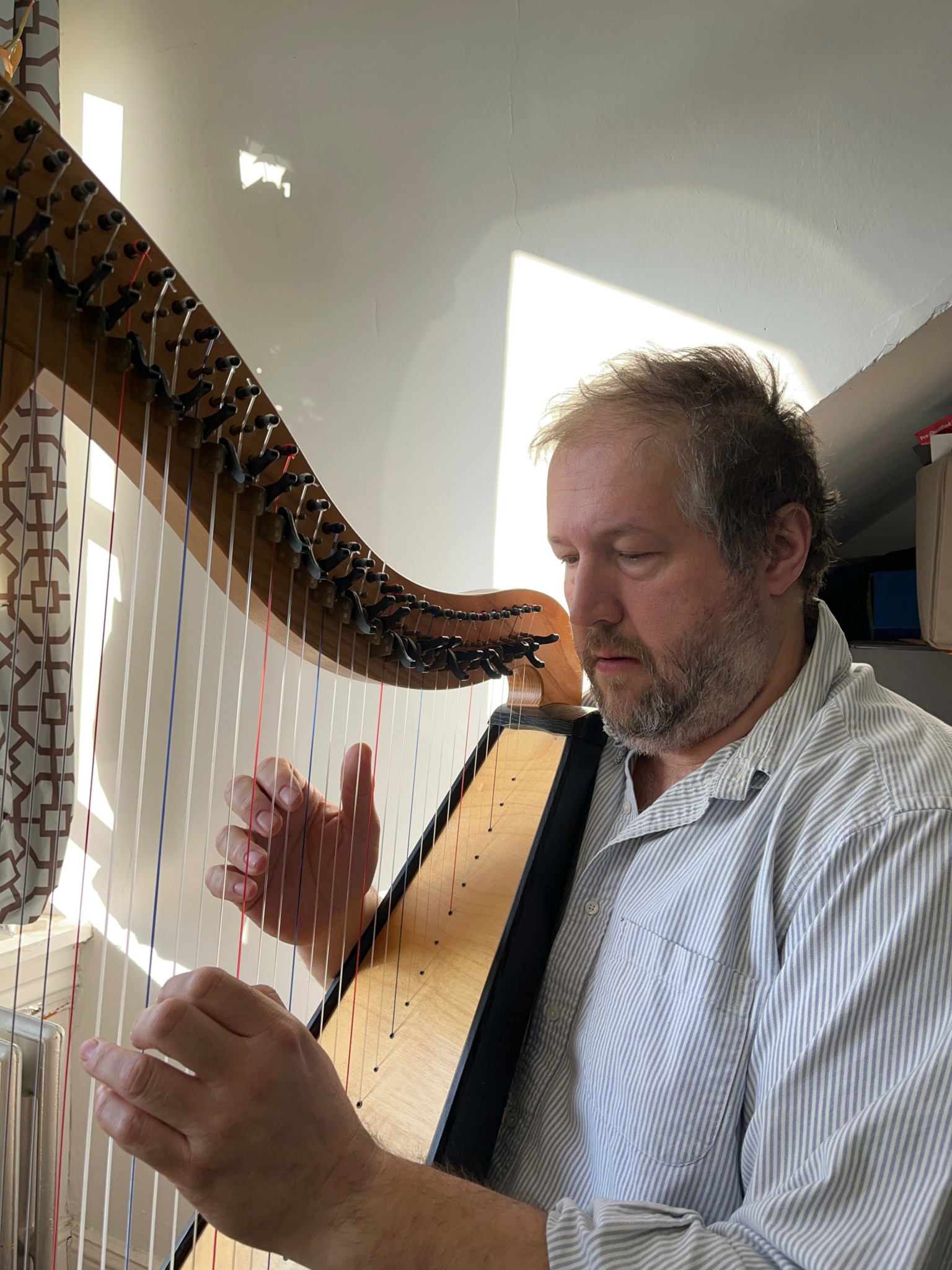We recently connected with Matt Deblass and have shared our conversation below.
Matt, thanks for joining us, excited to have you contributing your stories and insights. Let’s jump back to the first dollar you earned as a creative? What can you share with us about how it happened?
I earned my first pay as a working musician when I was still in high school.
Some of my teachers had a group that would play at local events, wedding receptions, school reunions and the like, and they would sometimes recruit band students to fill in to help us get our first taste of working in professional music.
It was the first time I had a sense that you could make money doing something outside of a punch-clock job.
Throughout the subsequent decades I’ve made performance a greater or smaller part of my total income, but I’ve also applied that thinking to other skill sets such as writing and editing.

Great, appreciate you sharing that with us. Before we ask you to share more of your insights, can you take a moment to introduce yourself and how you got to where you are today to our readers.
I’m a musician, and I think my creative self is something of a magpie. I pick up influences from all over the place and in addition to my original compositions I love to find and rework traditional folk songs from all over the place. One weekend I might be doing session work for a singer-songwriter, the next I might be singing traditional Irish songs at an outdoor festival.
This applies to instruments too, I started out playing drums in a rock band, but now I’m playing Celtic harp, mandolin, or teaching lessons on the bodhrán (Irish drum). I just like variety and love finding how disparate things can fit together.
In my off-stage work, I’ve done journalism and recently started working as a communications manager for a small nonprofit. As so much of our performing life moved online in 2020, my media-studies mind started getting really interested in how we shared music and creative work through social media. I got really into TikTok because of how collaborative it was, with the ability to respond and duet with other players.

What can society do to ensure an environment that’s helpful to artists and creatives?
Well… pay them?
Seriously though, almost nobody gets into creative fields because they think it’ll make them rich, they do it because they love it and feel like their life is more complete with it. And a lot of folks are happy playing guitar in their bedroom or sketching in a notebook at home, and never feel they drive to take their creative work to the public. And that’s great! Art and music should be for everyone, and something everyone should get to do for their own enjoyment.
But for folks who want to take their art to the public and put in the effort to create at a professional level, even if it’s only part-time, there’s an investment in time, passion and resources. Lessons, supplies, travel, whatever.
I used to gig with a guy who phrased it this way: he said, “I love playing music, the music is free. What you pay me for is to clear my calendar on Friday night, load thousands of dollars of gear into my car, travel to your venue, set up, do my best to make sure your patrons have a good time, then load my car up again to drive home at 2 a.m. The music is free, the rest I’d like to get paid for.”
Also, though, a lot of creative fields work on a very “winner take all” system, where a handful of very lucky folks get the big audiences and the big payouts, and almost everyone else is expected to work a day job or two to subsidize their creative work. Not to discount the talent of big-name creatives, but it means we only hear from a handful of voices. By supporting more local bands, independent filmmakers, local visual artists and all that, we help build a richer, more varied creative ecosystem. And yeah, I still like listening to big-time musical acts, or seeing blockbusters, but I love the idea that I can visit a small town and have them proudly hanging local art on the walls, showcasing their local bands, and having a film festival for the latest indie film that was made on a shoestring budget and mad creativity.
If we want to have a world where local creatives are thriving, we have to start by giving them the resources to create.

For you, what’s the most rewarding aspect of being a creative?
The most rewarding thing of creative work is that every now and then, on a good day, when the stars all align, you get to know you made someone’s day better.
One of my most treasured possessions is a scrap of notebook paper with a rough sketch on it of me playing harp. I’ve had for more than 20 years. I got it from a stranger in New Brunswick, NJ.
What happened was, when I was still just starting out and had a cheap little lap harp, I’d sometimes go sit in the park near my apartment to practice. One day I was just hanging out there noodling around, and chilling on a nice afternoon. At some point this young woman that had been sitting nearby got up and handed me a folded sheet of paper, said “this is for you,” and walked off.
On it was a doodle of me and the note “thanks for the playing. It brought me a smile when I had tears.”
There’s a lot of things I get out of creating music and art, but man, that’s really what it’s all about.
Contact Info:
- Website: https://mattdeblass.com
- Instagram: https://www.instagram.com/matt_deblass/
- Facebook: https://www.facebook.com/MattDeBlassCeltic/
- Linkedin: https://www.linkedin.com/in/matt-deblass/
- Youtube: https://www.youtube.com/user/velochelonian




